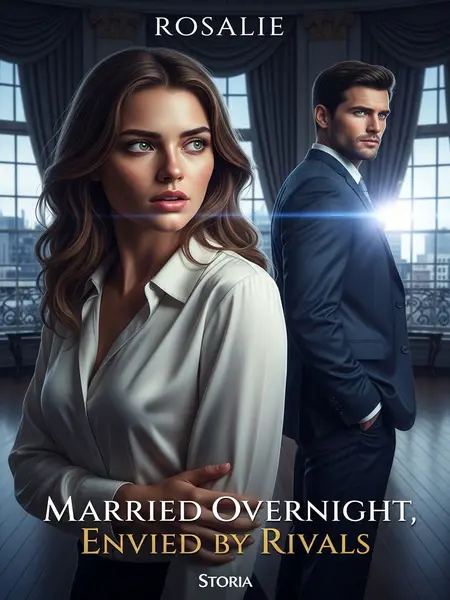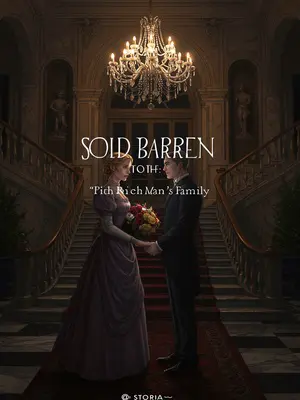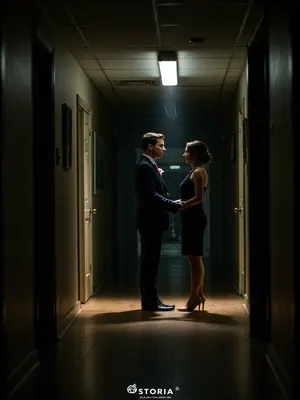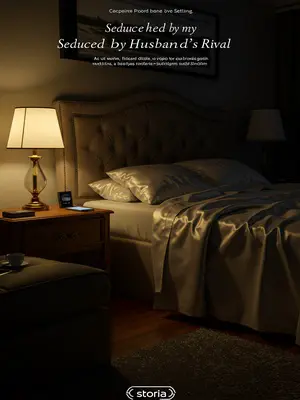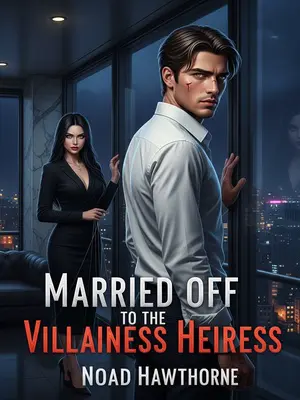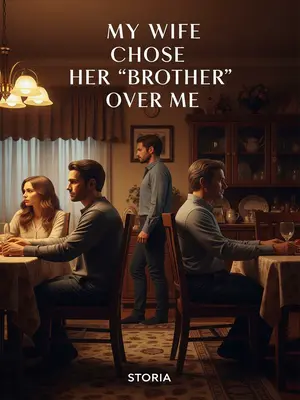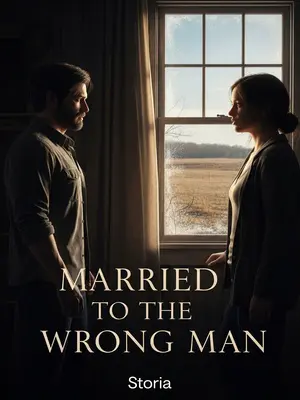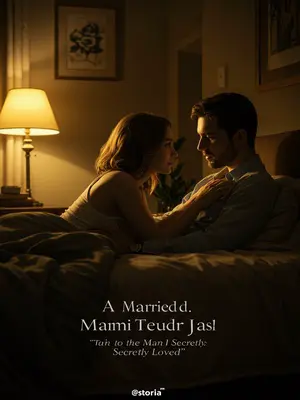Chapter 3: State Dinner, Stolen Glances
At the state dinner, I met Carter for the first time. He was my husband, so naturally he sat with me. He looked uncomfortable in his tux, tugging at the collar like it was strangling him. I tried not to laugh.
Who would’ve thought the supposedly gentle, refined valedictorian would be the type to baby his cousin and ignore his wife? Some people just love a cliché.
From across the table, I watched him pass the breadbasket to Emily without a word to me. He barely looked my way, his attention fixed on anything but his new bride. It stung, but I refused to let it show. Not tonight.
“Got anything to say to me, Carter?” I leaned in, my voice low enough for only him. Patience: running on fumes.
Carter stared straight ahead. “What do you want to hear?” His tone was flat, almost bored. I wondered if he realized how rude he sounded—or if he even cared.
I snorted. What’s this guy’s deal, acting all aloof? Seriously—he was lucky I didn’t dump my drink in his lap.
I bit back a sarcastic retort. If he wanted to play the cold fish, fine. Two could play at that game. I sipped my coffee, refusing to let him get under my skin.
Just as I was about to lower my head and sip my coffee, I felt someone staring. Looking up, I met Ambassador Grant’s eyes. The air shifted.
His gaze was intense, almost burning. For a second, it felt like we were the only two people in the room. My heart skipped, but I forced a smile. Show time.
Oh, he’s back. Just what I needed tonight—a blast from the past.
I hadn’t seen him since before the wedding. He looked tired, a little older, but still impossibly handsome in that brooding, diplomat way. I wondered if he’d heard the news—or if he’d come back just for me.
I propped my elbow on the table and gave him a sweet smile. If he wanted a show, I’d give him one. I tilted my head, letting my hair fall just so. The cameras would eat this up.
He was my childhood friend, the one who looked out for me since we were kids, but never once said he liked me. Now that I’m married, I wonder how he feels. Too late now, right?
There was always something unspoken between us—a tension I could never quite name. But he’d never crossed the line, never said the words. Now, it was too late. Or was it?
Halfway through the dinner, the envoy from the Western Republic stood up and said, "Mr. President, I’ve come to propose a marriage between our prince and your daughter. We hope our countries can be partners for a long, long time."
The room hushed, all eyes on Dad. The envoy’s words hung in the air, formal and rehearsed. I resisted the urge to roll my eyes. Here we go again.
The envoys from the North and the South quickly added, "Mr. President, our countries also wish to marry the President’s daughter." It was like a bad rom-com—everyone lining up to propose, as if I was some prize at a county fair. I glanced at Dad, wondering how he’d play it.
Dad leisurely sipped his wine. "Sorry, folks. My only daughter, Rosalie, is already married." He took his time, savoring the moment. The room buzzed with whispers, forks paused mid-air. Dad looked like he’d just scored a touchdown.
The envoys exchanged glances. The Western envoy smiled, but it didn’t reach his eyes. "You must be joking. When we arrived in D.C., she wasn’t married yet."
His smile was tight, forced. He wasn’t giving up that easily. I braced myself for round two.
Dad nodded. "Yep, she just got married yesterday." He said it so casually, you’d think he was talking about the weather. I almost choked on my water.
As soon as he finished, there was a crash—Ambassador Grant’s glass shattered on the floor. The sound was sharp, jarring. All conversation stopped. Grant’s hand shook as he set the remains of his glass aside, jaw clenched tight.
He clenched his jaw and asked, "The President’s daughter is married? Why didn’t I know?" His voice was strained, barely above a whisper. He looked at Dad, then at me. For a moment, he seemed genuinely hurt.
Dad glanced at Grant, sounding a little guilty. "You just got back this morning, right?" He tried to play it off, but everyone in the room could sense the tension. Grant’s eyes narrowed, searching for answers.
"May I ask who she married?" His tone was formal now, all traces of warmth gone. I felt a pang in my chest, but pushed it down.
I reached out and pulled Carter up. "This is the new valedictorian, Carter—my husband." Carter stumbled to his feet, caught off guard. He shot me a glare, but I ignored him. This was my moment, not his.
Carter, suddenly yanked up by me, steadied himself and glared at me. He looked like he wanted to say something, but thought better of it. I gave him a sweet, innocent smile, daring him to make a scene.
I raised an eyebrow. At a state dinner, in front of my dad and brothers, you dare glare at me? Are you out of your mind?
I held his gaze, refusing to back down. If he wanted to play tough, he’d picked the wrong opponent. I wasn’t budging.
The envoy from the Western Republic was first to react. "Since the President’s daughter is married, then our princess is willing to marry the Governor." The room erupted in laughter and surprise. My oldest brother nearly spit out his wine, coughing into his napkin. The rest of the table tried to hide their amusement.
Because I got married, the envoys immediately set their sights on my three brothers, clearly hoping to pair them off—one for each. But all three already have wives; unless their princesses are willing to be mistresses, the envoys are going home empty-handed.
The awkwardness was almost painful. The brothers exchanged glances, silently agreeing to let Dad handle this one. I sat back, enjoying the show. Sometimes, being a spectator is the best seat in the house.
The state dinner dragged, and I was too tired to listen to them argue, so I found an excuse to slip away. I mumbled something about needing fresh air and slipped out a side door. The hallway was blissfully quiet, the only sound my heels clicking on the marble floor.
I planned to rest in my suite for a while, but halfway there, I was stopped. A familiar voice called out, echoing down the corridor. My heart thudded in my chest.
"The dinner isn’t over yet. Where are you going, Rosalie?" It was Ambassador Grant—he’d actually followed me. I turned, more curious than annoyed.
He stood there, hands in his pockets, looking more vulnerable than I’d ever seen him. For a second, I wondered what he’d say next. The hallway suddenly felt too quiet.
"Do I need to report my whereabouts to you now?" I crossed my arms, trying to sound nonchalant. But my pulse was racing. Grant always had a way of getting under my skin.
"Rosalie, I…" He hesitated, searching for the right words. His eyes were softer now, almost pleading. I almost caved.
I raised a hand to cut him off. "Enough. You don’t get to use my childhood name anymore. It’s First Daughter Rosalie." The words came out sharper than I meant, but I didn’t back down. There were lines even Grant couldn’t cross.
Rosalie is only for my dad, my brothers, and the man I actually choose. Names matter in this world. I drew that boundary long ago.
Grant took a deep breath. "I used to call you that too." His voice was quiet, almost wistful. For a second, I felt the old ache—then pushed it away.
I looked up. "We were kids then. I don’t blame you, but now I’m already married." My voice was steady, even as my heart twisted. The past was the past. No going back now.
"I was gone for three months and you married yourself off. Fine. Great!" Grant said through clenched teeth, then turned and left. His footsteps echoed down the hall, fading into silence. I stood there, fighting the urge to call him back.
What kind of attitude is that? Can’t even say a kind word to me. I shook my head, annoyed. If he cared so much, why hadn’t he said anything sooner?
Mrs. Lin came up and whispered, "Miss Rosalie, you could’ve called the Ambassador back sooner." Her voice was gentle, but her meaning was clear. I glanced at her, then looked away.
"Hmph, why should I?" I tossed my hair, trying to sound indifferent. Deep down, I knew I was being stubborn. But pride runs deep in this family.
If I’d called, he would’ve come back and married me. But why should I chase him? I’m the President’s daughter. He never even said he liked me—if he wanted me, he should’ve said so. End of story.
When I returned to the Carter house, it was already dusk. The Carters were eating, with no intention of waiting for me. I didn’t care—if they don’t treat me as family, I won’t treat them as family either. The dining room was warm and bright, laughter echoing from the table. I paused in the doorway, then turned away. There was no place for me here—not tonight.
But of course, someone just had to make trouble. Always.
Trouble was Carter’s middle name, apparently. I braced myself for another round. Here we go.
Carter saw I had no intention of joining them and slammed his fork down on the table. Heads turned, forks paused mid-air. I kept walking, refusing to give him the satisfaction of a reaction.
I stopped and asked, "Carter, who are you mad at?" My voice was calm, cool. If he wanted a fight, he’d have to work for it.
Carter stood up and frowned at me. "You married into this family—you’re a Carter now. Respecting your mother-in-law is a wife’s duty." He sounded like he was reading from a 1950s etiquette manual. I almost laughed.
I nodded. "Oh…" I let the silence stretch, daring him to say more. Not backing down.
"I heard that this morning, you didn’t even serve my mother coffee. Such disrespect—how can you be a proper daughter-in-law?" His voice rose, indignant. I caught Emily’s smirk from the corner of my eye. The whole scene was absurd.
I couldn’t help but laugh. "Carter, you really ought to learn more about how things work in D.C." I crossed my arms, leaning against the doorframe. In this city, power was everything—and I had plenty of it.
He’d just become valedictorian and moved to the capital, probably only knew textbooks, not how things work in real life. He was out of his depth. I almost felt bad for him. Almost.
I’m the President’s daughter; he’s just a private citizen. I let the words hang, making sure he understood the difference. No matter what the marriage certificate said, we weren’t equals—not here.
